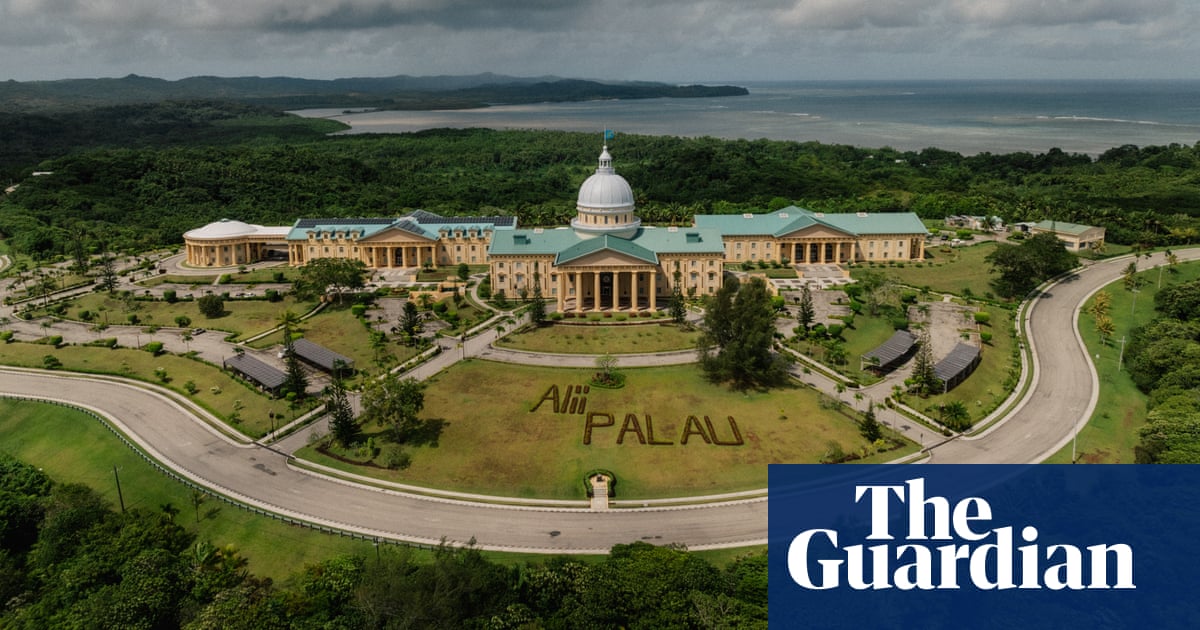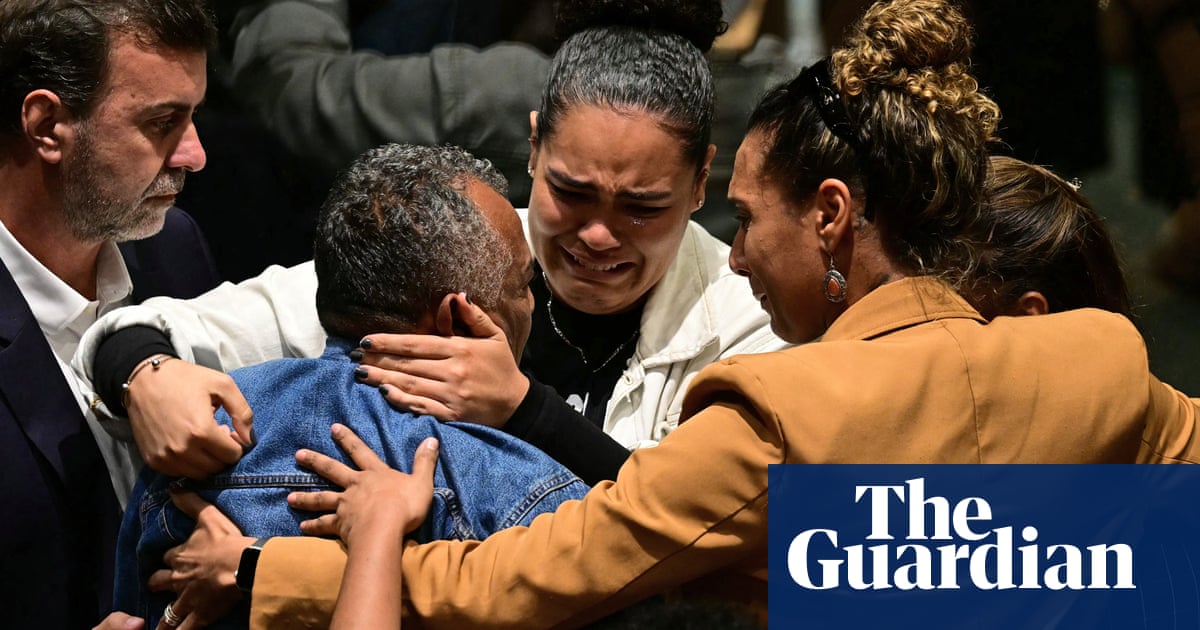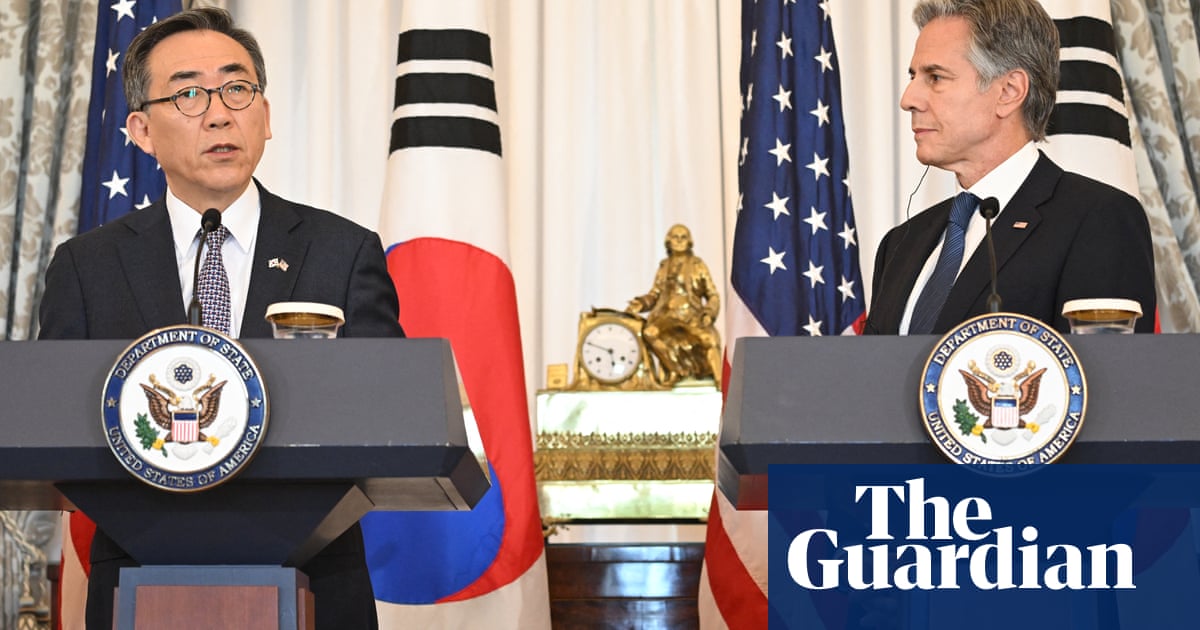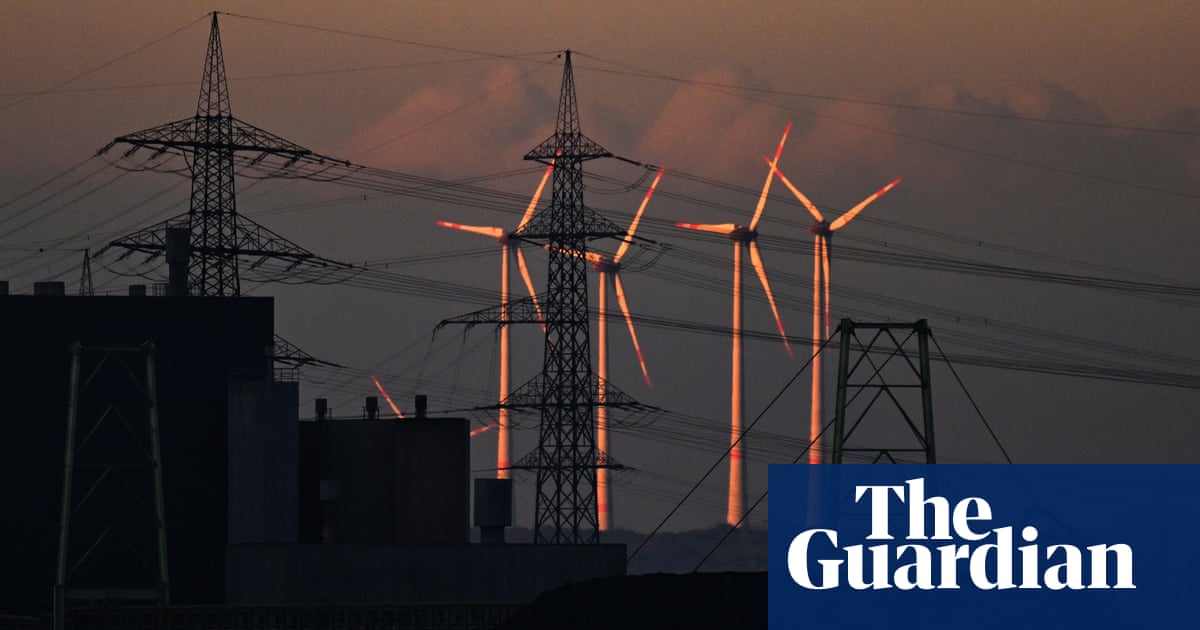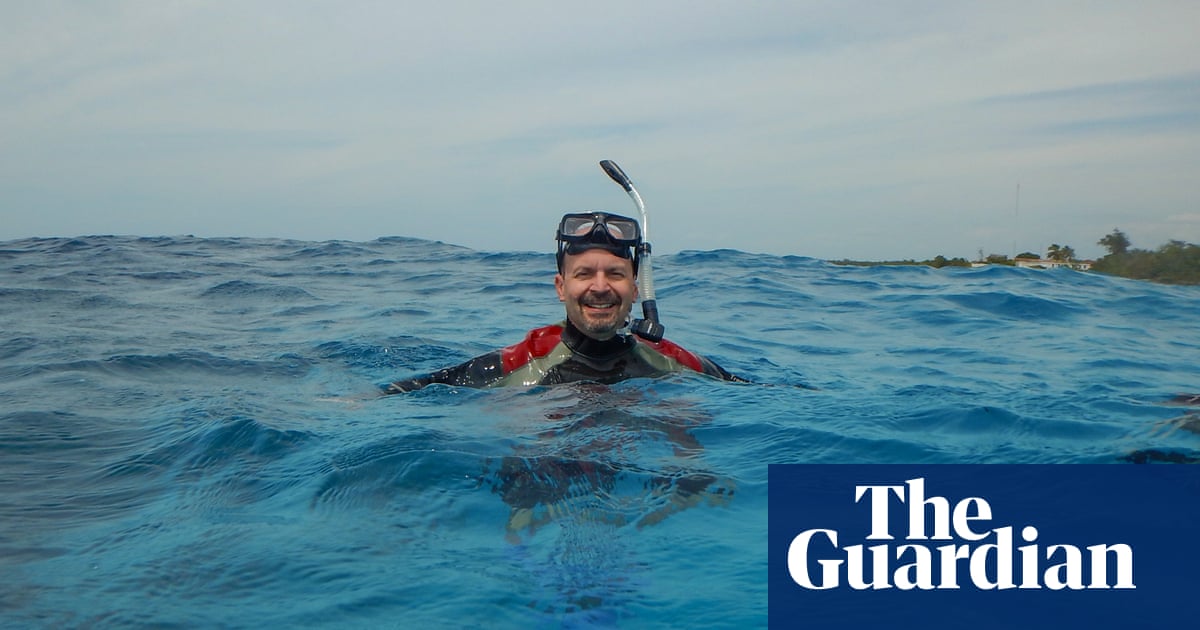Flanked by a turquoise lagoon, a newly rebuilt US military runway slices through forest in southern Palau. Completed just months ago, the airfield is the latest example of a push by the United States to build its presence in the Pacific as concerns around China’s reach in the region grow.
The small Pacific country is one of 12 in the world that has diplomatic ties with Taiwan instead of China and will head to the polls on 5 November, the same day as the US.
Voters are mostly concerned about a weak economy and cost of living crisis. But outside Palau, the election symbolises the growing tussle for influence by Washington and Beijing playing out across the Pacific.
The contest is an unlikely battle between brothers-in-law – President Surangel Whipps Jr will take on former president Tommy Esang Remengesau Jr. Whipps, a staunch pro-US candidate, wants to reform Palau’s economy and strengthen security ties with Washington. Remengesau, a Palauan chief known for his environmental achievements, has signalled a willingness to work more closely with China and other partners on climate action and to meet Palau’s economic needs.
The archipelago of about 18,000 people lies just east of the Philippines. Dr Michael Green, chief executive officer at the United States Studies Centre in Sydney, says Palau’s strategic position has made it a focal point in a geopolitical tug-of-war.
“These small islands that few people know about suddenly become the objects of major strategic competition,” he says.
_______
On the east coast of Babeldaob, Palau’s largest island, truck driver Aiu Andres says it is getting more difficult to make ends meet.
“Life today is a little bit harder,” the 33-year-old says from his home as he pats his baby to sleep. “The prices are going up, but usually it’s because we import a lot of our products, so we cannot even really control the prices.”
Most of Palau’s goods – worth about $70m each year – are imported from the US. Palau was fully administered by America until independence in 1994, and it continues to have deep ties with the US under a Compact of Free Association. The agreement sees the US provides more than 10% of Palau’s annual budget, and gives Palauans the right to work and live in the US. In return, Washington has full control of defence and military operations over land, air and sea in this strategic string of islands.
Palau’s president, Whipps, has welcomed US support and sought to extend its military presence in the country over his four-year term.
“We see what’s happening around our region, we see what’s happened in the Philippines, China has just moved into those reefs, no respect for sovereignty” Whipps said, referring to China’s contested incursions into the South China Sea.
“As a small nation … I think it’s a benefit for Palau to have that special relationship with the United States.”
Even before he was a politician, Whipps’ name was well known to Palauans. He served as CEO of the massive family company started by his father, Surangel & Sons. Its logo – a smiley face wearing a crown – emblazons the country’s only mall, the diggers that crisscross a massive quarry site near the national airport, the shirts of grocery store workers, a local bakery, a car rental company and countless other local businesses.
Whipps no longer works for the company since becoming president in 2021. Over the past four years, Surangel & Sons’ construction arm has won at least 37 US defence contracts, valued at more than $5.8m.
Whipps’ rival for the presidency, Remengesau Jr, calls this a “conflict of interest”.
“There seems to be no equal opportunities or opportunities for other companies to get the benefits of government projects or military projects,” Remengesau said, adding that if he were elected president, he would look to break up the size of tendered projects so that smaller Palauan companies could compete for them.
Whipps dismisses such criticisms as “sounding like a Chinese narrative”.
“We have never cheated, never taken advantage of any situation that we’ve been in, from when we started our business 40 years ago, until now,” the president told the Guardian.
Remengesau served as president of Palau for 16 years, on-and-off between 2000 and 2020. Under his administration, Palau became known globally for several ambitious environmental policies – from creating the world’s first shark sanctuary to converting 80% of Palau’s waters into a marine sanctuary.
Sitting at his home in the main town of Koror, while his young granddaughter leans against his shoulders and a small white kitten nips at his legs, Remengesau says he never intended to get back into politics. But a petition signed by more than 6,000 Palauans and delivered to him earlier this year convinced him otherwise.
Remengesau doesn’t oppose US military involvement in Palau but says it should not be a priority for Palau. He wants more consultation with traditional and community leaders to ensure the projects don’t harm Palau’s environment.
“China and the US are trying to outdo each other with their defence and military strategies in the Pacific,” Remengesau says. “But security for us is not about defence and militarisation. Security for us is about climate change and global warming.”
It’s highly unusual in Palau for family members to run against each other, and both Whipps and Remengesau say it’s “unfortunate” that they are in opposition, especially at a time when Palau faces mounting economic pressures.
The president says a 10% goods and services tax (PGST) introduced last year provides necessary revenue for the government, while Remengesau and his supporters have criticised the levy for worsening the financial burden on Palau’s low-income households.
“The problem with our economy is we have only one source of revenue, and that is the tourism industry,” the country’s only female senator, Rukebai Kikuo Inabo, says.
“China was our main tourism market prior to Covid when we reached like 100,000 [visitors], but because of the Pacific politics, they have used tourism as an economic tool to try and change our foreign affairs.”
In 2017, the Chinese government ordered tour operators to stop selling packages to Palau in what many Palauans locals call “the China ban”. More recently, shortly after Palau’s government accused China of being behind a cyber-attack, Beijing issued a travel advisory for the Pacific country citing safety concerns.
China’s foreign ministry was contacted through regional embassies but did not respond.
Tourism makes up an estimated 40% of Palau’s GDP, and both presidential candidates have accused China of using economic pressure to influence its foreign and domestic policies. Whipps also believes the biggest opponents to the PGST are from businesses “affiliated with a lot of Chinese [nationals]”.
China maintains active commercial interests in Palau despite not having formal diplomatic relations with the country. At night-time in a downtown Koror bar, a group of Chinese businessmen play darts. They are in the country for the week, drafting the plans behind a new hotel on the island, one of several owned by Chinese nationals.
But not all Palauans see China’s activity in the country as a bad thing. Newspaper publisher Moses Uludong, who recently dropped out of Palau’s presidential race, struck a deal with Chinese businessmen in 2018 to create a new media group aimed at building ties between the two countries.
The initiative never came to fruition, but Uludong is still keen for Palau to better benefit from China’s lucrative market, saying it is wise for the country to “make friends with the biggest bully”.
“How come the Chinese can do business here and we can’t do business there?” Uludong tells the Guardian. “We want to promote Palau in China so tourists can come.”
While there’s no indication Palau will shift its alliance away from the US and Taiwan following the election, Green says its leaders’ ability to resist China’s overtures depends on the strength of its governance.
“It’s more about how well governed the country [is] … and how accountable its leaders are,” Green says. “[Otherwise] leaders will do things for short-term political gains, with long-term consequences.”
Palau’s alliance with Taiwan is popular among many of its voters. Taiwan provides the Pacific country a range of support – scholarships to study at Kainan University, visits from health staff to provide free medical checks to Palauns, and other modest agricultural and infrastructure projects.
The former president is open to working more closely with China, as long as Palau can maintain its existing diplomatic relationships, especially with Taiwan.
“To be honest, we would have relations with China and Taiwan if it was possible,” Remengesau said. “If China wants to become our friends, yes, we’ll accept them.”
